In the Public Eye — Spring 2025
Oncology Social Worker Honored at Major League Baseball Game
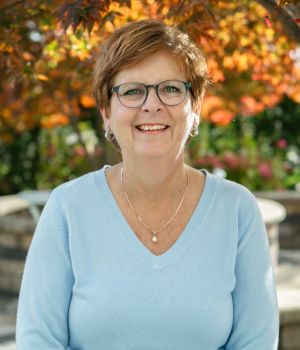 NASW-Ohio member DeAnn Gallatin, an oncology social worker at Kettering Health main campus and its cancer center, was recognized at a Cincinnati Bengals game for her 40-year career of going above and beyond for patients and co-workers.
NASW-Ohio member DeAnn Gallatin, an oncology social worker at Kettering Health main campus and its cancer center, was recognized at a Cincinnati Bengals game for her 40-year career of going above and beyond for patients and co-workers.
“I have just been privileged to be with patients as they’re going through some of their hardest times and have the most wonderful co-workers and support from all of my leadership,” Gallatin told NewsNation. “It’s just been, it’s been an amazing career.”
Gallatin helped bring the CLIMB (Children’s Lives Include Moments of Bravery) program to Kettering Health. She has been able to work with children and help them cope with difficult situations, the article notes.
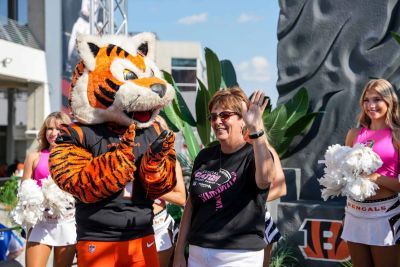 During her career, Gallatin co-ran a brain tumor support group and played a large part in launching CLIMB, which is a six-week program that helps kids cope with having a loved one battling cancer, the story says.
During her career, Gallatin co-ran a brain tumor support group and played a large part in launching CLIMB, which is a six-week program that helps kids cope with having a loved one battling cancer, the story says.
People are what drew Gallatin to this line of work in the first place. “I love people, and I love to hear their stories,” she said.
Gallatin has always wanted to help people, especially through the toughest times in their lives, she told NewsNation.
Erin McNamee
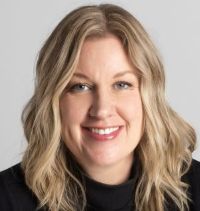 NASW-Florida member Erin McNamee was profiled in an article at canvasrebel.com. The psychotherapist with a private practice in Boca Raton was asked if she would take the same career path if she had to start over. “Absolutely,” she said in the article. “But I think it’s important to understand that my path took me to a lot of different places before I ever became a therapist. From my undergraduate degree in political science, to the ‘cubicle years’ of working in an insurance company, to serving as a Peace Corps volunteer in West Africa, to nonprofit work, to getting my master’s, to hospitals, to treatment centers, to getting my doctorate, to private practice, to creating Family Recovery Collective, and a lot of other experiences along the way. Each of the people I’ve met, places I’ve worked, and different jobs I’ve had lend themselves to the therapist I am today.”
NASW-Florida member Erin McNamee was profiled in an article at canvasrebel.com. The psychotherapist with a private practice in Boca Raton was asked if she would take the same career path if she had to start over. “Absolutely,” she said in the article. “But I think it’s important to understand that my path took me to a lot of different places before I ever became a therapist. From my undergraduate degree in political science, to the ‘cubicle years’ of working in an insurance company, to serving as a Peace Corps volunteer in West Africa, to nonprofit work, to getting my master’s, to hospitals, to treatment centers, to getting my doctorate, to private practice, to creating Family Recovery Collective, and a lot of other experiences along the way. Each of the people I’ve met, places I’ve worked, and different jobs I’ve had lend themselves to the therapist I am today.”
Destiny Johnson
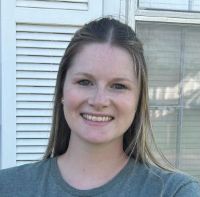 NASW Kansas member Destiny Johnson was highlighted in a Tri-County Tribune article after a cohort of judges voted to award Johnson with the inaugural Rural Minds Matter Young Advocate of the Year Award.
NASW Kansas member Destiny Johnson was highlighted in a Tri-County Tribune article after a cohort of judges voted to award Johnson with the inaugural Rural Minds Matter Young Advocate of the Year Award.
Johnson worked to provide mental health services to students at Stafford Elementary School in rural Kansas. “It’s really important for the kids I worked with to know they aren’t alone,” Johnson said in the story.
“We would try to start services at a young age so they can learn tactics early. Early intervention when I see kids struggling either emotionally or behaviorally is key for them to succeed later in life.”
The award aims to celebrate the work that cultivates resilience and well-being among farmers, ranchers and rural communities.
Ellen DeVoe
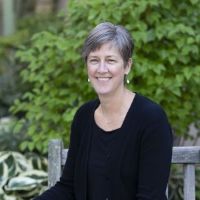 The impact of the Los Angeles wildfires overwhelms the public imagination. Therapists will need to treat many of the surviving individuals traumatized by loss. But the most effective immediate help likely will come from the communities themselves, says NASW-Massachusetts member Ellen DeVoe, founding director of the trauma certificate program at Boston University’s School of Social Work and a professor of clinical practice.
The impact of the Los Angeles wildfires overwhelms the public imagination. Therapists will need to treat many of the surviving individuals traumatized by loss. But the most effective immediate help likely will come from the communities themselves, says NASW-Massachusetts member Ellen DeVoe, founding director of the trauma certificate program at Boston University’s School of Social Work and a professor of clinical practice.
DeVoe, who was interviewed for an article posted at BU.edu, said experiencing a catastrophe like the LA fires or other natural disasters can exacerbate already challenging circumstances for people who are survivors of early or other trauma. She says rebuilding communities and re-establishing the rhythms of regular life will be the best short-term therapy for survivors.
Dawn Shedrick
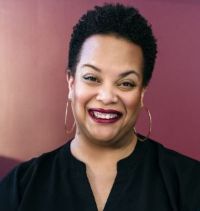 New York NASW member Dawn Shedrick was quoted in a story posted at WQLN.org about the toll caregiving takes on a loved one. When it comes to taking care of older adults, it is usually unpaid caregivers, the story noted, and it is typically not recognized as a job. Shedrick is a social worker who is a caregiver to her mother. She said if you have not been or currently are not a caregiver you will most likely be one at some point in the future.
New York NASW member Dawn Shedrick was quoted in a story posted at WQLN.org about the toll caregiving takes on a loved one. When it comes to taking care of older adults, it is usually unpaid caregivers, the story noted, and it is typically not recognized as a job. Shedrick is a social worker who is a caregiver to her mother. She said if you have not been or currently are not a caregiver you will most likely be one at some point in the future.
“So just let the caregivers in your life know that you see them,” she suggests as a way to show support. “Authentically offer support and help in the ways that you know that you can so that we can keep this conversation going, and more caregivers, you know, feel comfortable expressing themselves and their experiences.”
Ariella VanHara
 Ariella VanHara, of the NASW Florida Chapter, is a licensed social worker and clinical professor of social work at Florida Gulf Coast University. She talked with ABC-7.com about Post-Traumatic Stress Disorder.
Ariella VanHara, of the NASW Florida Chapter, is a licensed social worker and clinical professor of social work at Florida Gulf Coast University. She talked with ABC-7.com about Post-Traumatic Stress Disorder.
“People can experience symptoms such as heightened alert, even flashbacks, even dissociation, feeling like they’re detached from their body, altered sense of reality,” VanHara says in the story. Big parts of PTSD are the triggers. “If an argument or some type of trigger word or even type of situation reminded them of it, or even the brother resembled something, or there was a sound, smell or taste, whatever it may be, can absolutely trigger that dissociation,” she said. Having someone there to pull you back to reality can be a big help, she added.